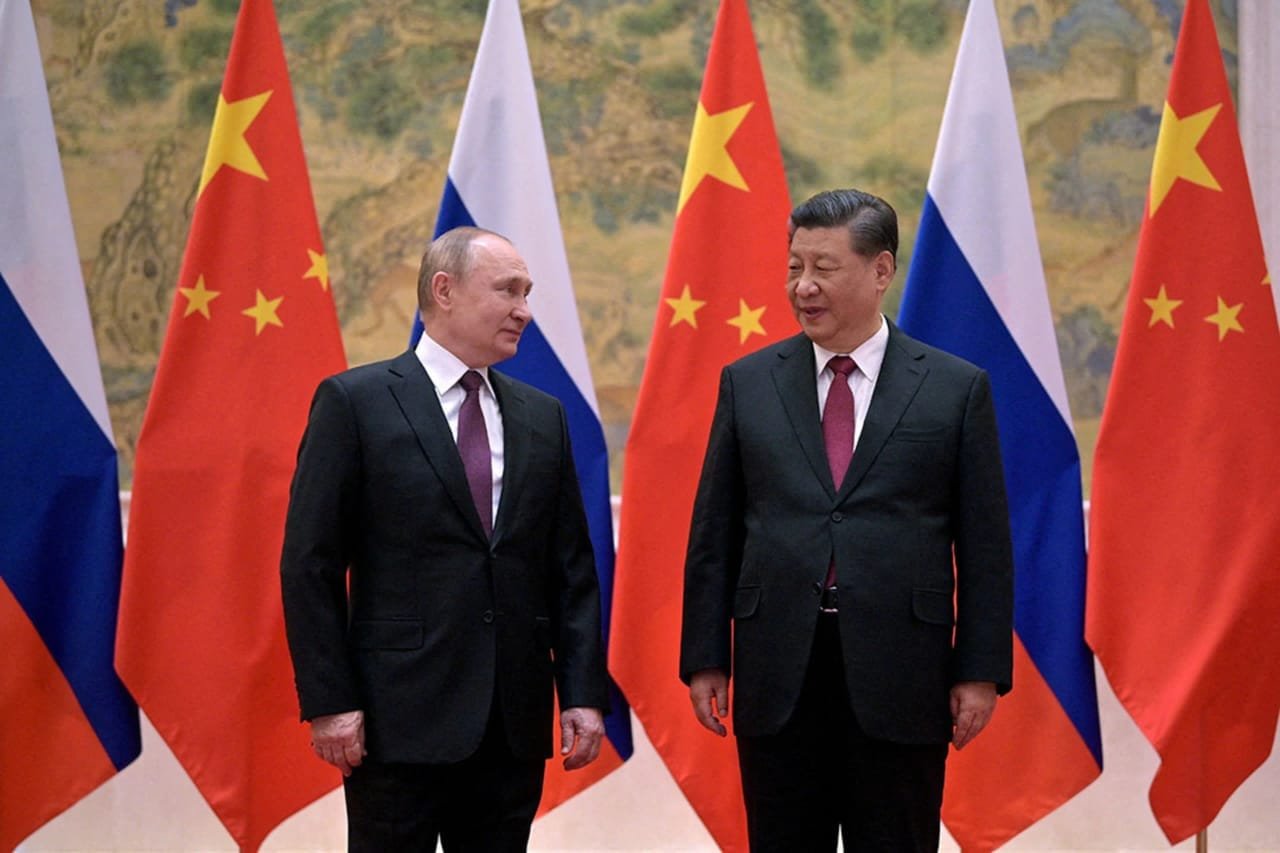
Russian President Vladimir Putin and Chinese President Xi Jinping during the 2025 summit.
Introduction Changing geopolitical scenario Russia China cooperation
As global geopolitics undergoes significant changes, redefines traditional alliances, and emerges with new strategic equations, international relations experts have focused on the growing economic and strategic cooperation between Russia and China. The upcoming summit between Russian President Vladimir Putin and Chinese President Xi Jinping is an important event in this changing dynamic. This summit not only provides an opportunity to strengthen bilateral relations, but also signals the emergence of a multipolar world order where other powers challenge US dominance.
The policy of economic sanctions adopted by the US in recent years has brought Russia and China closer. The sanctions imposed on Russia, especially after the Ukraine crisis and the trade war with China, have prompted both countries to seek alternative economic and strategic options. So, in this backdrop, Russia-China cooperation is no longer just a strategic alliance, but an attempt to build a new global order. But where the dominance of the US dollar is reduced and a multi-polar system is established.
Background and historical context of Russia China cooperation
Historical development of Russia-China relations The history of relations between Russia and China has been complex and multi-faceted. This friendship, which began in the middle of the 20th century on the basis of communist ideology, also saw periods of tension due to border disputes and ideological differences. Also, in the 1960s, there was a border conflict between the two countries, after which there was a lot of rift in the relations. But in the 1990s, after the disintegration of the Soviet Union and the economic rise of China, the relations between the two countries started improving.
From the beginning of the 21st century, they began to promote the strategic partnership between Russia and China. The establishment of the Shanghai Cooperation Organization (SCO) in 2001 was an important step in this direction which provided a platform for regional security and economic cooperation. v And when Western countries imposed economic sanctions on Russia after the Crimea crisis in 2014, China supported Russia and tried to increase bilateral trade.
Current geopolitical context
Current Russia-China relations should be seen in the context of global geopolitical changes. The US started adopting unilateral policies since the tenure of former President Donald Trump, which created uncertainty in international relations. Trump’s repeated use of trade war policy and economic sanctions has created distrust towards the US in many countries. And in this sequence, tension was also seen in US relations with countries like India. But in July 2025, the US decided to impose an additional tariff of 25% on India and also criticized India’s policy of importing oil from Russia. This also forced India to change its foreign policy and it decided to revive its relations with Russia and China. The Putin-Xi summit to be held in November 2025 is a link in this changing geopolitics.
Trade and Economic Cooperation Russia China cooperation
Current Scenario of Bilateral Trade Trade relations between Russia and China are developing rapidly. By 2024, bilateral trade had crossed the $200 billion mark which was only around $100 billion in 2020. But the main reason behind this rapid growth is the huge increase in energy exports from Russia to China. And Russia has now become China’s largest crude oil supplier. Also, there has been a huge increase in the export of natural gas. And Talking about the trade balance, China still has a strong side. Because it exports manufactured products and electronic goods to Russia. But Russia has tried to reduce this imbalance by increasing the export of agricultural products and raw materials in recent years. Both the countries have also decided to promote trade in local currencies. So that dependence on the US dollar can be reduced.
Also talking about energy cooperation
The energy sector, the backbone of the strategic partnership, has become the most important pillar of Russia-China economic cooperation. Both countries have made many long-term agreements. Which includes the supply of oil and gas. Ambitious projects like the Power of Siberia gas pipeline have provided energy security to China. While Russia has found new markets. But in 2023, Russia supplied more than 100 million tons of crude oil to China which is more than 20% of China’s total imports. In the field of natural gas, Russia plans to increase its supply from 38 billion cubic meters to 100 billion cubic meters by 2025. These energy agreements have not only met the economic needs of both the countries. But also increased strategic interdependence between them. And investment and infrastructure projects But Russia and China promote cooperation in infrastructure projects.
Military cooperation and joint exercises
Military cooperation between Russia and China is an important part of their strategic partnership. And both countries regularly conduct joint military exercises. Which includes Air Navy and Army exercises. These exercises are aimed at improving military synergy and countering regional security challenges. Also, in September 2024, Russia and China conducted a joint naval exercise in the Sea of Japan involving more than 20 ships and several aircraft. And this exercise served to send a message in response to the US naval presence in the region.
Similarly, the two countries have also increased cooperation in the field of cyber security and space. Also technology transfer and defense trade, which Russia has long been exporting advanced weapons systems to China, including the S-400 missile defense system and the Su-35 fighter aircraft. In recent years, with the development of China’s indigenous defense industry, the nature of defense trade has changed to technology transfer and joint research.
Impact on regional dynamics
Russia-China cooperation is having a profound impact on the dynamics of regions such as Central Asia, the Middle East and Southeast Asia. Central Asian countries that previously came under Russia’s sphere of influence have now come closer to China due to its Belt and Road Initiative. This has created subtle competition between Russia and China. But both countries strive to avoid open confrontation. And in the Middle East, Russia and China have strengthened ties with countries like Iran and Saudi Arabia, which has reduced US influence.
In particular, China’s 25-year strategic partnership agreement with Iran reflects China’s growing presence in the region. Impact on India-Russia relations For India, Russia-China cooperation presents both a complex challenge and an opportunity. Historically India has had a strong strategic partnership with Russia. But in recent years India has become increasingly inclined towards the US and the West. But India has had to change its foreign policy due to the US imposing tariffs on India and criticism of Russian oil imports.







1 thought on “Russia China cooperation: Trade, energy, and strategy”